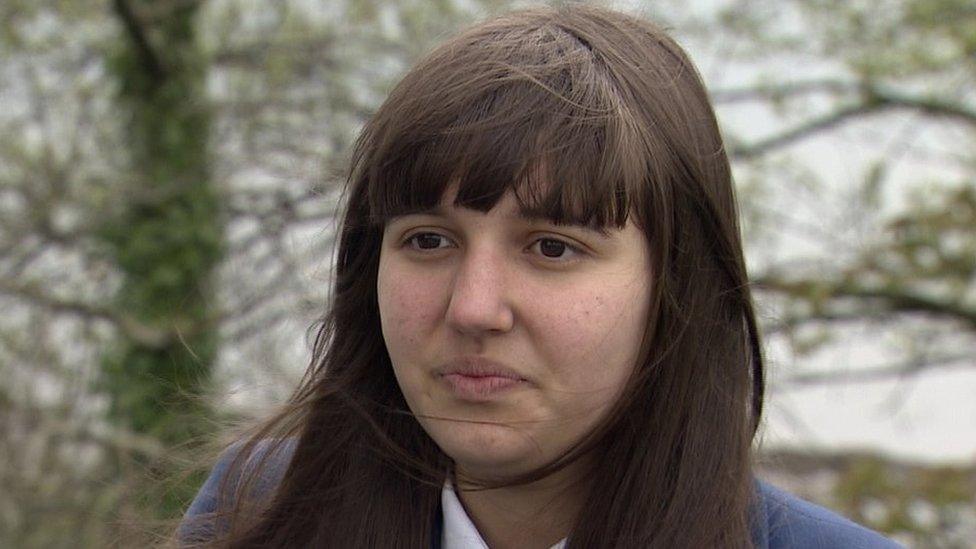Cost of living: 'My bereavement support payment doesn't cover the bills'
- Published
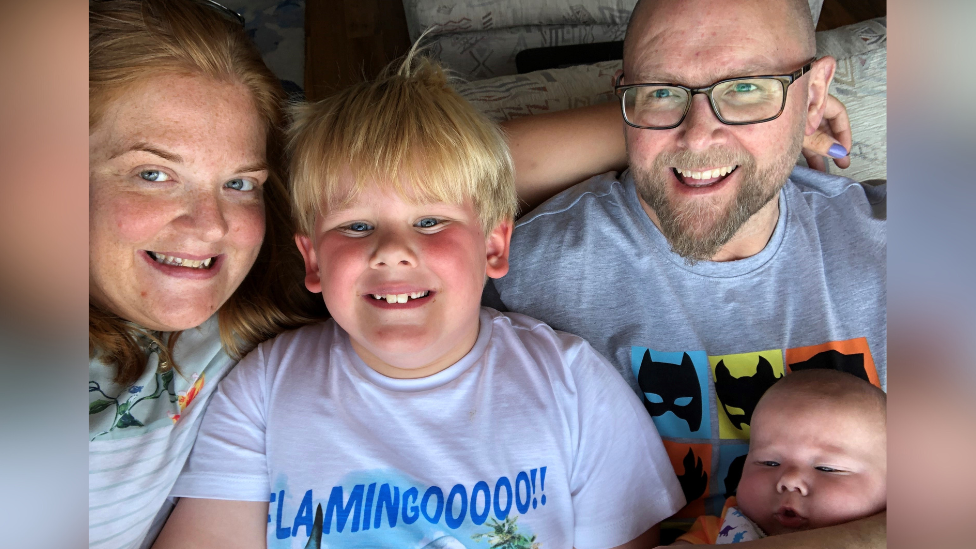
Lindsay McWilliams has been struggling to pay bills since her husband Paul died in 2021
Lindsay McWilliams remembers the day she received the devastating call to tell her doctors were turning off the machines keeping her husband alive.
Paul McWilliams was 51 years old when he died in 2021, four weeks after falling into a coma.
Suddenly the mother-of-two from Waringstown, County Down, was left not only with shattering grief - but also bills to pay.
She wasn't expecting her husband to die young and it wasn't something she planned for financially.
"He had liver cancer and then had a really successful transplant. We thought we had a second chance," she told BBC News NI
"But unfortunately, he caught Covid."
Covid led to the coma from which Paul never recovered.
Amongst the pain and heartbreak, there were practical financial matters to sort out.
What bereavement support is available?
Paul didn't have life insurance because, due to a number of medical conditions, it was too expensive, Lindsay said.
"He was born with rheumatoid arthritis and he had type 1 diabetes, so his life insurance premiums would have been at least £300 a month, which we just couldn't afford at the time."
Before Paul died, Lindsay worked part-time as it allowed her to be at home in the evenings for her children, four-year-old Jasper and 11-year-old Ross.
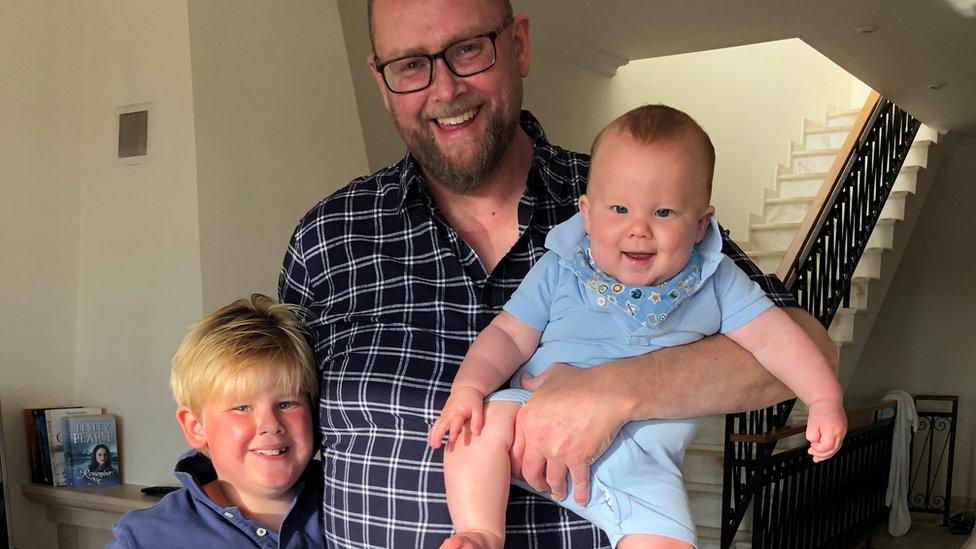
Paul had been diagnosed with liver cancer, but died shortly after contracting Covid
Paul was a management consultant and his wage was the main source of family income.
But after Paul died, Lindsay couldn't work for the first two years. Her mental health took a battering, she said. Family stepped in to help.
"My mum should be enjoying her pension, but she is still supporting us to this day," Lindsay added.
Once she was able to find her feet, the mother-of-two tried to find out what support was available - but found it was only the Bereavement Support Payment, which had replaced the Widowed Parent's Allowance.
"Initially I received a payment of £3,500, which they say is to help with the funeral, and then you get £350 a month for 18 months and then that stops," she said.
For Lindsay, the level of support is inadequate.
"It's not enough to help cover a mortgage payment or even food bills," she continued.
"Everything has just gone through the roof."
Under the Widowed Parent's Allowance, a payment of about £700 would be made monthly until the child finished education but that is no longer the case, she added.
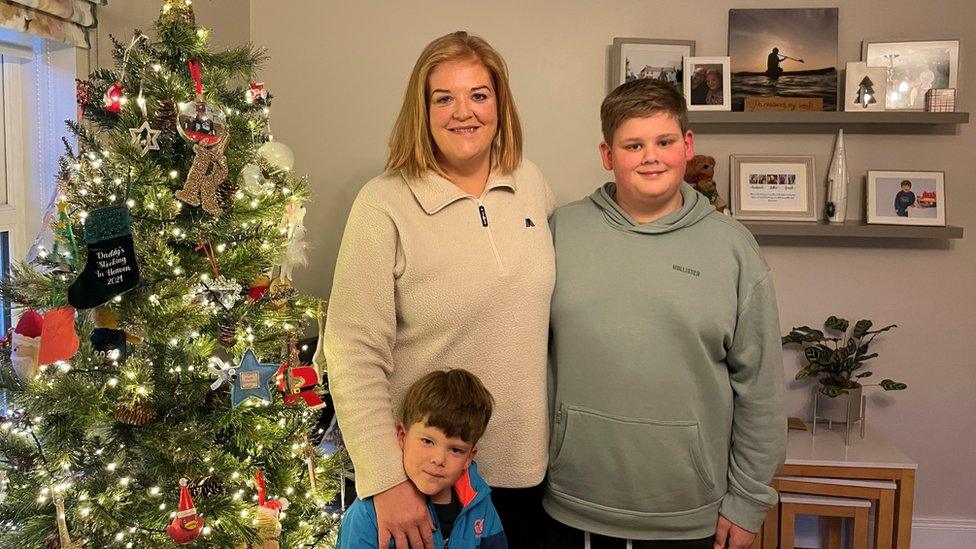
Without the support in place, Lindsay says it is tough to financially look after her two sons
The Department for Communities said the Widowed Parent's Allowance was replaced by the Bereavement Support Payment in April 2017, and that anyone already receiving it will continue to do so until they are no longer eligible.
The decision to abolish the old allowance was made by the government as part of its review of the previous system, it added.
The new payment was designed to help with the more immediate costs of bereavement and to allow for a period of adjustment.
However, Lindsay and many other bereavement charities are calling for the Bereavement Support Payment to be extended beyond 18 months.
Not enough time
Colette Scarbrough-Jelfs, head of operations at bereavement support charity WAY Widowed and Young, said extending the payments would help young, widowed people to cope with the challenges of raising bereaved young children on their own.
"Eighteen months is not enough time, especially when children are involved," she said.
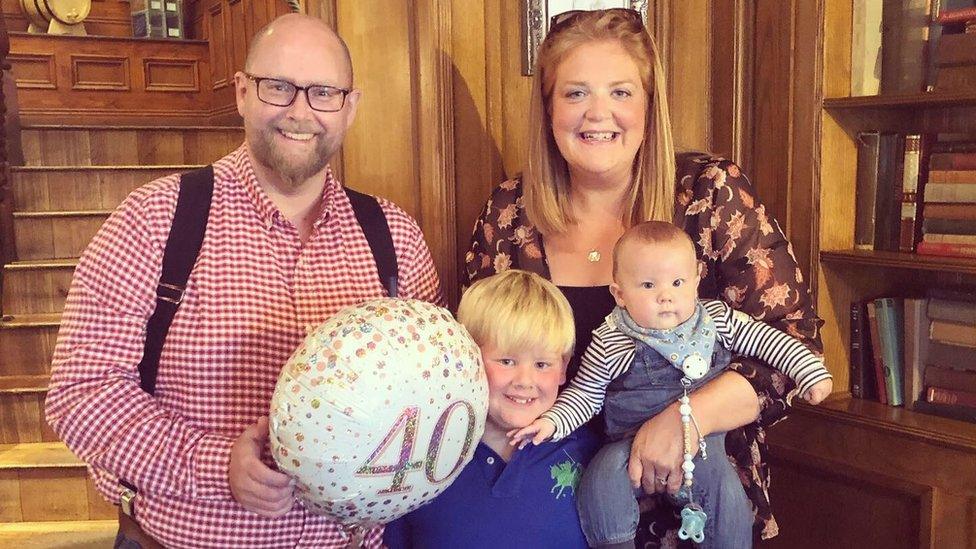
Charities say widows in Lindsay's position should be given more than 18 months of support
"You've gone from having two incomes in a household to one, but you've still got the cost of keeping that household and bringing up children.
"The person has gone through a massive life change. We are hearing from our members that finishing the payments after 18 months is actually sending them back to the early stages of grief and they are really struggling."
The added pressures of the pandemic and the cost-of-living crisis, as well as being widowed, can also be incredibly difficult for people to manage, Ms Scarbrough-Jelfs added.
'The system needs to change'
As of this year, Lindsay now no longer receives the bereavement payment. It's been tough financially, she said.
"The older system was a lot better. It took a little bit of the pressure off your life changes."
"You don't ask or want to be alone. The current system needs to change.
"A lot of people are still receiving payments from the old system because their spouse died before 2018, whereas people like myself aren't getting anything.
"It just doesn't add up or make sense."
Related topics
- Published20 December 2023
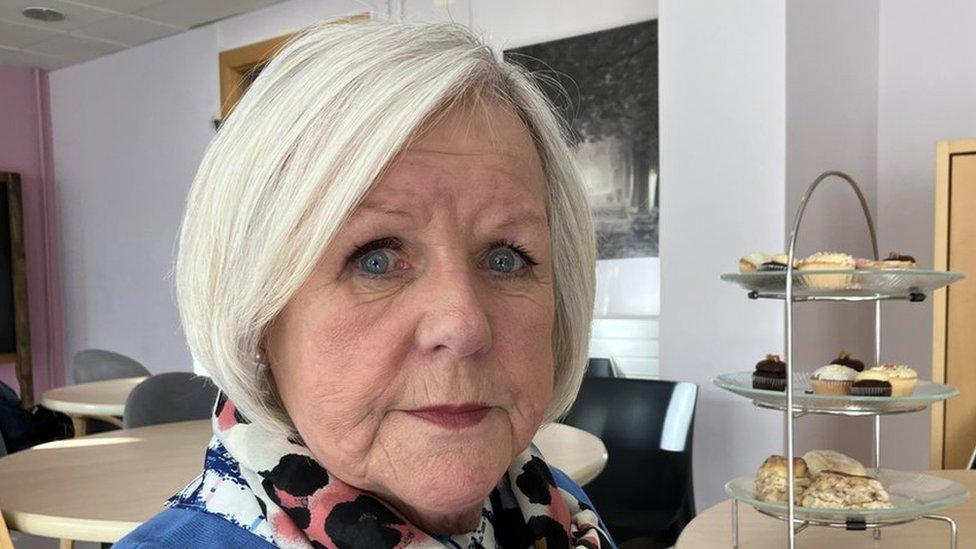
- Published22 September 2023

- Published29 April 2023
